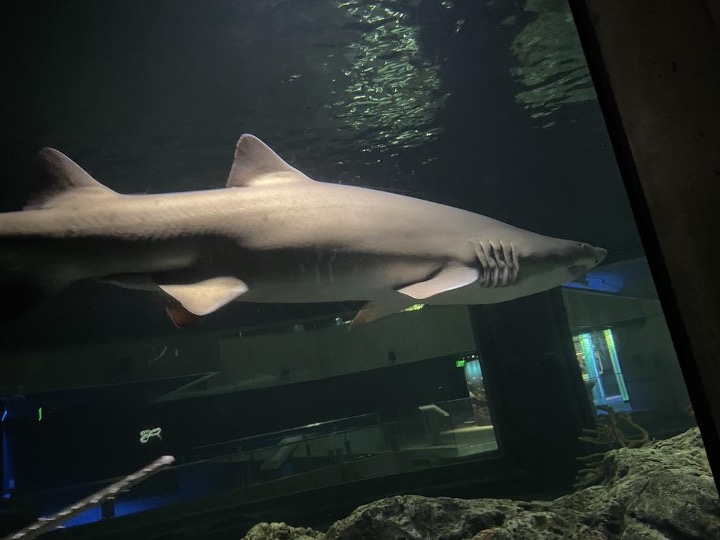Relay runs in the family for the Montani’s.
Two years ago, Nick Montani co-chaired Relay for Life at Loyola. This year, his younger sister Marisa is at the helm.
“My mom had breast cancer,” Marisa Montani said of why Relay is so important to her family. “And my grandma passed away from cancer. That’s why we got started.”
This year marked the 10th anniversary of Relay at Loyola, and Marisa Montani along with co-chair Amy DeMarco, both juniors, wanted to ensure that this year’s event would be both special and successful.
They chose the theme “The Cure Starts Here” and ran with it, decking the venue with board-game-inspired décor. A Scrabble board was criss-crossed with words like “hope” and “brave,” mock Twister mats and game pieces lined the halls outside Reitz Arena and the photo booth featured puzzle pieces painted with phrases like “Celebrate more birthdays.” “We try to find something general [like board games] and twist it to Relay style,” said Montani.
Montani and DeMarco also made a momentous change this year, lowering the event’s goal from $200,000 to $180,000—a goal they felt would be more likely to be met.
“Of course we want to hit $200,000,” said Montani, “but the fact that we picked a more realistic goal is something different and something that people are really excited about.” The grand total Sunday morning came to $179,087.84, very nearly reaching their target.
This year, the Relay team also joined forces with SGA to announce the musical act for Loyolapalooza, something that had never been done before. “Having Loyolapalooza announced was awesome and I think they’ll be looking to do that again next year,” said Montani.
Relay boasts a committee of about 150 students, divided into sub-committees in areas such as PR, online and mission, which each have a specific focus in aiding in the preparation for the main event in March. “I didn’t really know anyone on committee before,” said Montani, “but I’ve come out of this with 150 new friends who have become like family.”
Nicole Miller, a junior member of the mission committee whose mother is a breast cancer survivor, agreed that the camaraderie is one of the highlights of being involved with Relay. She said, “It’s so great to see everyone come together and work for something like this.”
Preparation for Relay begins essentially at the start of the academic year, with the kick-off event occurring in November. “[The fall] is used to build connections and really get to know everybody,” said DeMarco. Montani, who spent the fall semester studying abroad in Bangkok, felt she had missed out on that important part of the process. “I felt very out of place because everyone was together for so long,” she said, though she feels as though she was able to make up for lost time. “It’s definitely like first you’re building trust and building connections, then you take that and make that into an event.”
Montani and DeMarco estimated that they spend about four to five hours a week early in the year, which then increases to a staggering six to 10 hours a day in the three weeks before the event. “The spring is very hardcore,” said Montani. “It’s just go, go, go.” DeMarco added, “I don’t think we’ve slept this week.”
After Montani and DeMarco spent so much time together in preparation for Relay, Montani said, “My mom asked ‘So what are you going to do when you’re not with Amy anymore?’”
It is Montani’s mother who inspired both Montani siblings to get involved. Marisa was worried that there would be high expectations for her in the wake of her brother’s success, especially with this year’s senior class who had worked under Nick during his time here. But she admits that there was some good-natured sibling rivalry involved as well. “It was just competition,” she said, “and I think we won.”
But Marisa recognizes that at the end of the day it all boils down to what Relay is really about. “I love seeing my mom so happy at the event,” said Montani, whose mother always carries the banner for the survivor lap around the track. “She’ll be going to Relays until she’s 80 years old.”













































































































